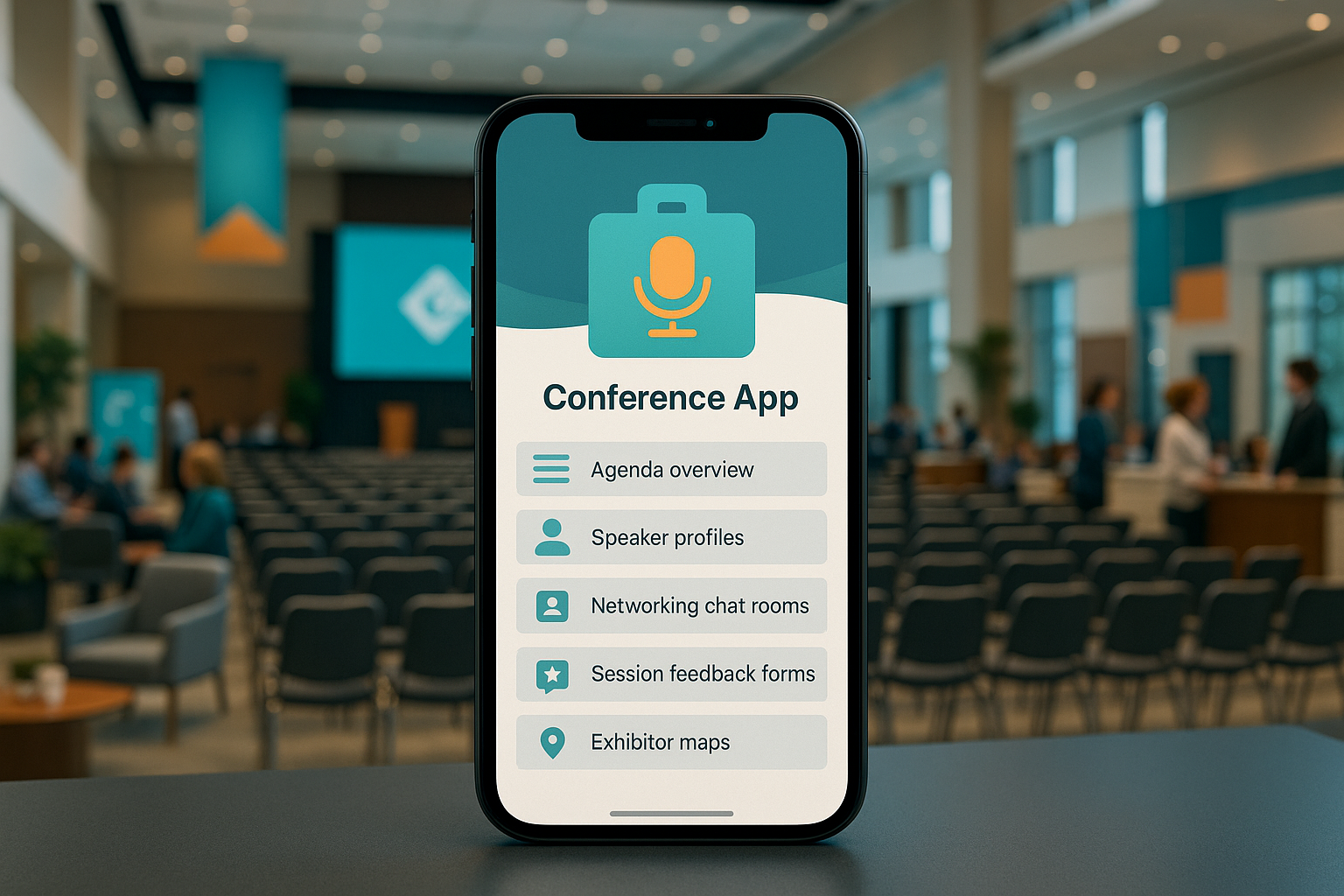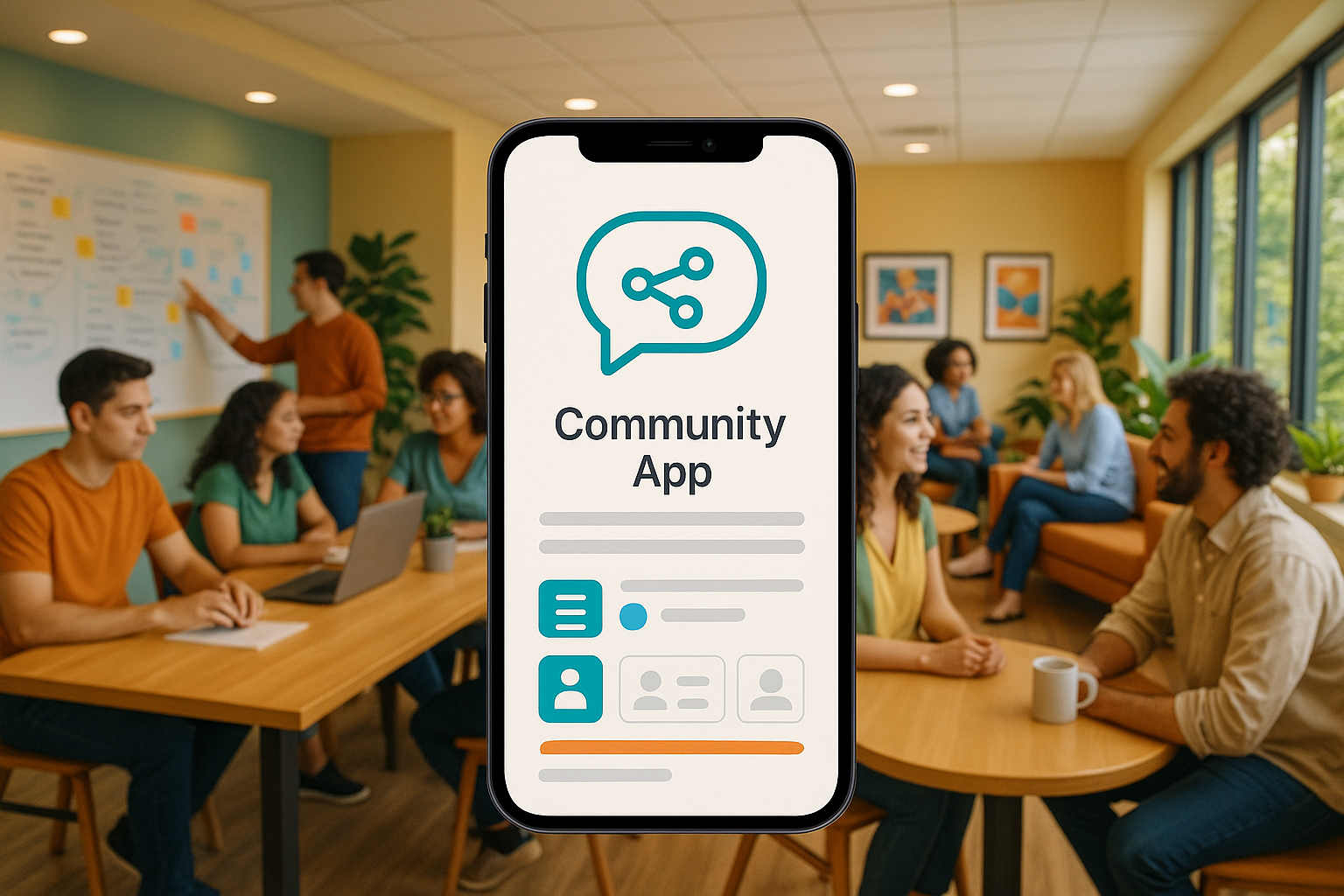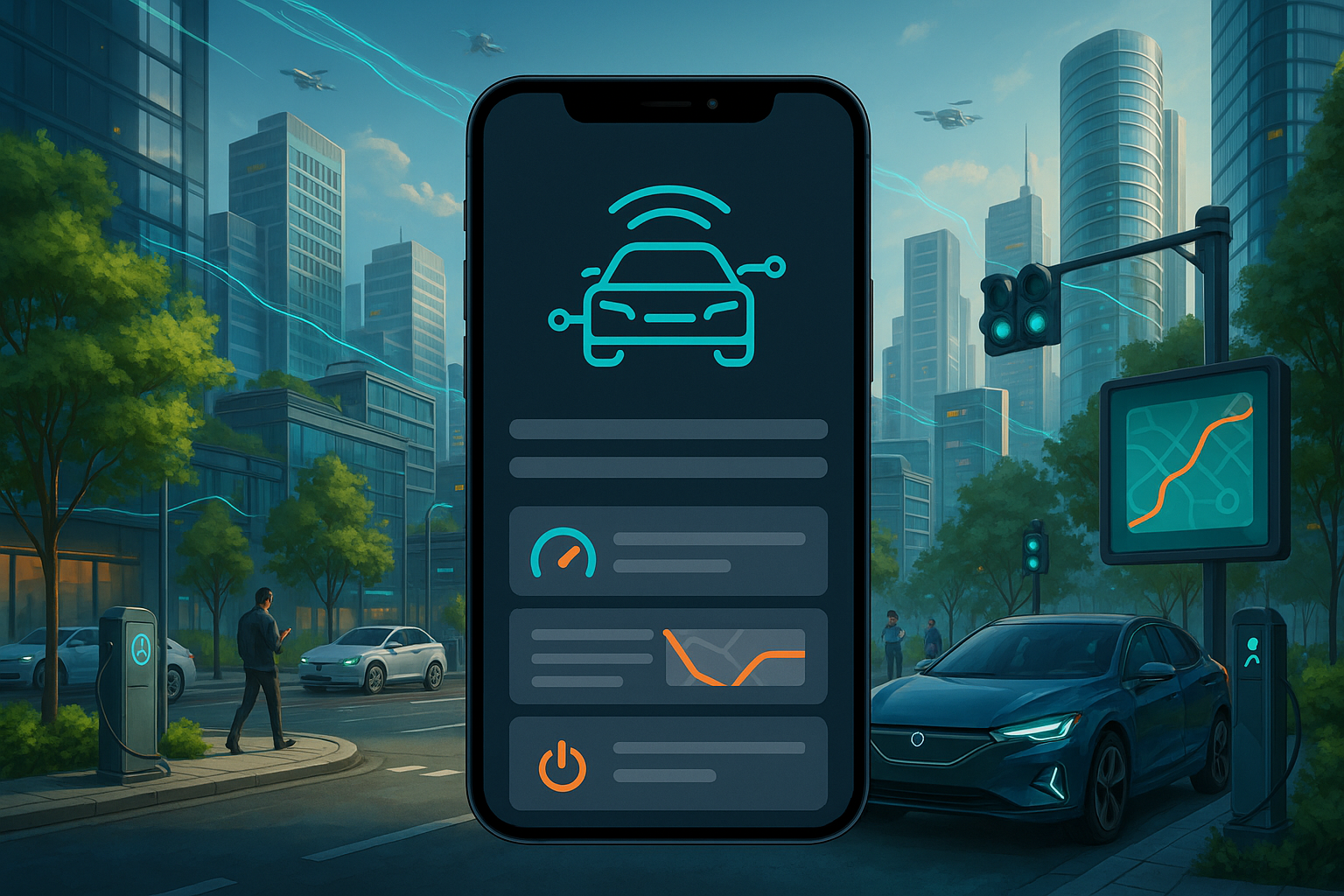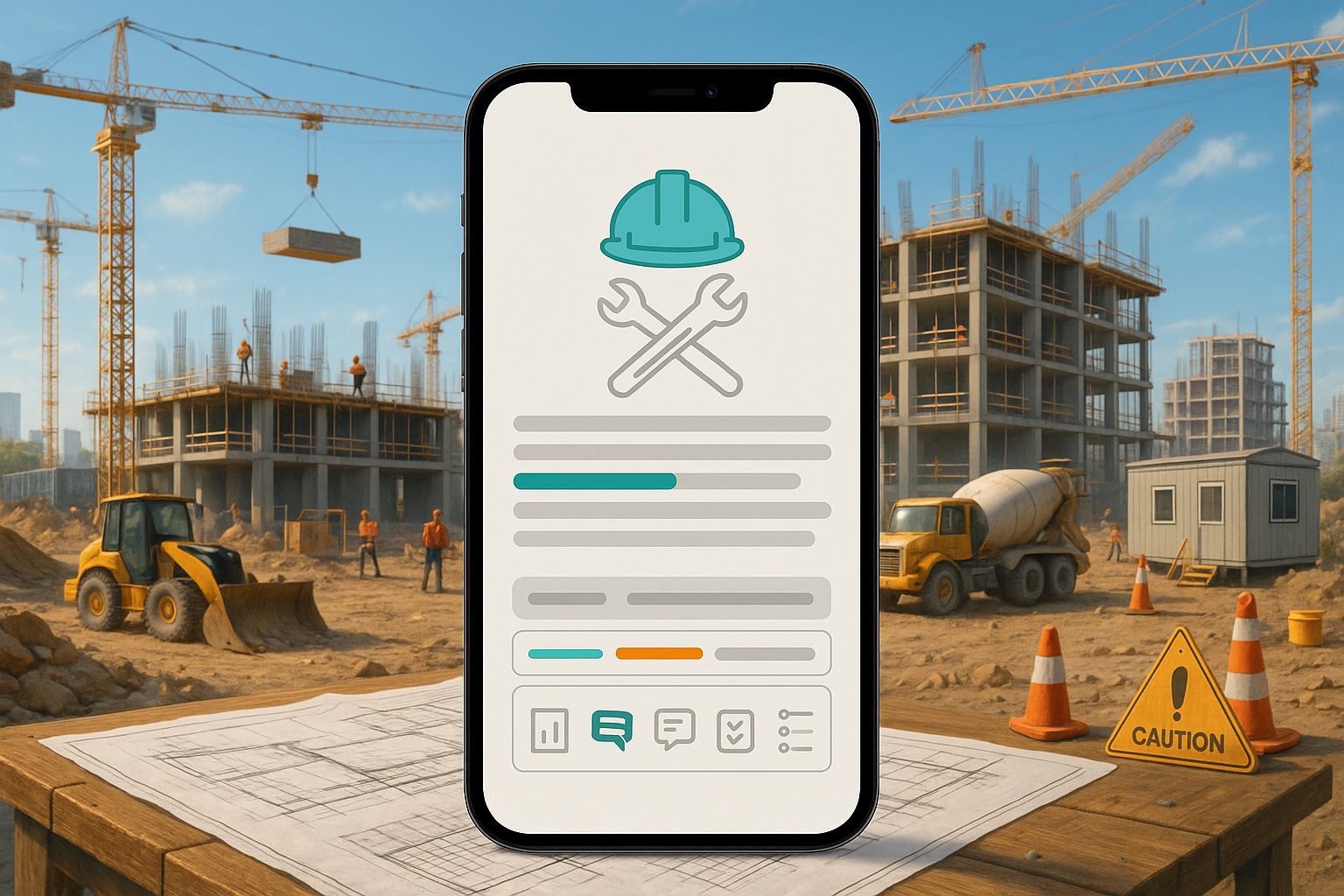Introduction
In the fast-paced world of corporate events, conferences, and trade shows, the margin for error is razor-thin. Event organizers are tasked with a monumental challenge: creating a seamless, engaging, and memorable experience that not only satisfies attendees but also delivers clear, measurable value to stakeholders. In this high-stakes environment, one of the most significant pain points is managing the immense complexity of communications, logistics, networking, and engagement. The right conference mobile app can solve these major pain points, transforming an event from a logistical challenge into a connected, intelligent, and smooth-running experience that leaves a lasting impression.
However, developing such an app is a formidable undertaking. It requires a deep understanding of user experience design, scalable backend architecture, cross-platform compatibility, and the specific nuances of event technology. This article will serve as your comprehensive guide to conference app development. We will explore what a conference app truly is and the powerful capabilities it can unlock. We will also delve into the significant difficulties of attempting to build one in-house, outline the different types of apps available, and provide a clear-eyed look at the potential costs.
Finally, we will introduce you to the leading conference app development companies that can help bring your vision to life. As a top US AI-powered app development firm with over 20 years of experience, we at MetaCTO specialize in turning complex ideas into market-ready mobile apps. We will show you how partnering with an expert agency can help you navigate the development process, avoid common pitfalls, and launch an app that drives engagement, streamlines operations, and proves undeniable ROI.
What is a Conference App?
At its core, a conference app is far more than a digital version of the event brochure. It is a dynamic, powerful tool designed to elevate the attendee experience, streamline operations for organizers, and unlock valuable insights that drive success. The right mobile event app for conferences can fundamentally transform the way organizers plan, execute, and measure their in-person events. It becomes a central hub for engagement, a command center for operations, and a data-driven engine for proving return on investment (ROI).
A robust app serves three primary functions: driving engagement, streamlining operations, and delivering clear ROI.
A Powerful Tool for Engagement
Modern attendees expect more than passive listening; they want to participate. A mobile app is the key to turning attendees from a passive audience into active participants. This is achieved through a suite of interactive features that keep people involved and invested in the event experience. These features often include:
- Live Polls and Q&As: Speakers and organizers can interact directly with the audience, sparking real-time feedback and deepening engagement. Features like session polling, Q&A, and upvoting keep the energy high and the conversation flowing.
- Personalized Agendas: Attendees can explore the schedule, register for sessions with a single tap, and receive smart notifications about upcoming sessions or changes. Advanced apps offer personalized agendas that can auto-update based on user preferences, ensuring attendees always know where to be and what’s next.
- Gamification: Challenges, leaderboards, and rewards can be built into the app to encourage attendees to explore exhibitor booths, attend specific sessions, and network with peers.
- Session Ratings and Feedback: Gathering immediate feedback on sessions helps organizers understand what content resonates with their audience, providing invaluable data for future event planning.
A Central Hub for Streamlined Operations
For event organizers and their internal teams, a conference app acts as a single source of truth, keeping everything organized and accessible in one place. This cuts down on manual coordination and ensures a smoother flow from setup to wrap-up.
- Real-Time Updates: Organizers can instantly notify attendees of last-minute room changes, updated session times, or important announcements via push notifications and real-time alerts. This eliminates confusion and the need for printed materials or chasing down staff.
- Centralized Information: The app houses all essential information, including detailed agendas, speaker bios, and interactive venue maps. This empowers attendees to navigate even large, multi-track events with ease, ensuring everything they need is just a tap away.
- Sponsor and Exhibitor Visibility: The app provides a dedicated space for sponsors to stand out. Features like branded sponsor pages, banner placements, in-app promotions, and lead capture tools give sponsors the visibility they need and help organizers demonstrate clear value back to them.
A Data-Driven Engine for Proving ROI
Perhaps the most critical function of a modern conference app is its ability to collect rich behavioral data. This data moves event measurement beyond simple headcount and into the realm of actionable intelligence, allowing organizers to understand what’s working, what isn’t, and why.
- Behavioral Analytics: By tracking metrics like session attendance, engagement with interactive features, and in-app user behavior, organizers gain deep insights into attendee interests and content popularity.
- Actionable Intelligence: This data can be presented in real-time dashboards and post-event analytics reports. Insights from these reports, covering everything from engagement trends to attendee satisfaction, directly inform the event’s ROI story.
- Strategic Future Planning: The data collected not only proves the impact of the current event to CMOs and stakeholders but also provides a concrete foundation for making strategic decisions for future events, enabling a cycle of continuous improvement.
Ultimately, a conference app is an essential piece of technology that provides a seamless blend of engagement, personalization, and operational efficiency, turning a one-time event into a longer-term community and learning experience.
Reasons that it is difficult to develop a Conference app in house
While the benefits of a custom conference app are clear, the path to building one is fraught with challenges, especially for organizations considering an in-house approach. The reality is that developing a high-quality, scalable, and reliable event app requires a level of specialized expertise, resources, and long-term commitment that most internal IT or marketing teams do not possess. Attempting to build it yourself can quickly become a drain on time and money, pulling focus from your core business objectives.
Here are the primary reasons why in-house conference app development is so difficult:
Prohibitive Cost and Financial Risk
The sheer cost of building a mobile app from the ground up is often the first and most significant barrier. The investment extends far beyond the initial build.
- Initial Development Costs: Based on complexity, the design and development costs for a mobile event app can range anywhere from $20,000 to over $200,000. Even a simple app with basic features can start at $5,000 for a startup, while medium-sized businesses can expect to invest between $10,000 and $50,000 for more advanced functionality.
- Ongoing Maintenance Costs: An app is not a one-and-done project. It requires continuous maintenance to remain functional. The typical cost of maintaining an app ranges from 10% to 20% of the initial development cost annually. This includes updating the app for new operating systems (iOS and Android), fixing bugs, and ensuring security. Factoring in these ongoing costs, the total investment to build and future-proof your own app could easily reach $100,000 to $125,000.
- Hidden Costs: Beyond development and maintenance, there are costs for testing, deployment to app stores, and the server infrastructure required to support the app and its users, especially during peak event times.
Immense Technical Complexity
A successful conference app is a complex ecosystem of interconnected features that must work flawlessly. An in-house team without specific experience in this domain will face a steep learning curve.
- Scalability and Performance: The app must be built to handle high volumes of concurrent users, complex agendas, and multiple user types (attendees, speakers, sponsors, staff). It needs to perform reliably even in low-connectivity environments, such as a crowded conference hall, allowing attendees to access their agendas and network without interruption.
- Cross-Platform Compatibility: The app must be built to work smoothly on all major operating systems and a wide variety of devices, which requires specialized development and testing processes.
- Real-Time Integrations: A conference app does not live in a vacuum. It must integrate seamlessly with other critical systems, including registration platforms, marketing automation tools, and CRM software, to create a unified data flow and a smooth user journey from the moment someone registers.
- Advanced Features: Implementing sophisticated features like AI-powered networking suggestions, real-time messaging, and interactive venue maps requires advanced programming skills and a robust backend infrastructure that can be challenging to build and maintain.
Lack of Specialized Expertise and Opportunity Cost
Building a great app requires more than just coders. It requires a full team of specialists who understand the unique demands of event technology.
- Niche Skill Sets: A successful project needs product managers, UX/UI designers, mobile developers (for both iOS and Android), backend engineers, and QA testers who specialize in building engaging, user-first mobile experiences. Most in-house teams are structured to support core business software, not event-specific, consumer-facing apps.
- Opportunity Cost: Dedicating your internal development team to a conference app means they are not working on your primary products or strategic initiatives. This diversion of resources can slow down innovation and impact your bottom line in other areas.
Partnering with a specialized custom mobile app development agency like MetaCTO mitigates these risks. We provide the expert team, proven processes, and technical infrastructure to build, launch, and maintain your app efficiently. Our experience allows us to navigate the complexities of app development, freeing your team to focus on what they do best: running your business and creating an amazing event.
Different types of Conference apps
When deciding on a mobile app for your conference or event, it’s helpful to understand that they come in different forms and serve a wide range of purposes beyond traditional corporate gatherings. The primary distinction lies in how the app is delivered to the user and its scope of use.
Based on facts from the event management platform Guidebook, we can categorize conference and event apps in a few key ways.
Deployment Models
The two main ways to deploy an event app are as a standalone application or within a container app.
-
Standalone App: This is a fully branded application that is published under your organization’s name in the Apple App Store and Google Play Store. Attendees search for your event’s name and download your specific app. This approach offers the highest degree of branding and a dedicated presence on a user’s device. It’s often the choice for large, recurring events or organizations that want to build a year-round community around their brand.
-
Container App: In this model, your event’s information and interactive guide are housed within a larger, pre-existing platform app, such as Guidebook. Attendees download the main Guidebook app and then search for or enter a code to access your specific event guide within it. This is often a more streamlined and cost-effective option, as it leverages an existing, proven application framework.
Scope of Use
While we’re focused on “conference apps,” this technology is incredibly versatile and is used to power a wide variety of gatherings and experiences. Forward-thinking professionals are using simple app builders and custom platforms for many different use cases. The same core features—schedules, maps, notifications, and interactive content—can be adapted for:
- Trade Shows: Helping attendees navigate large exhibition floors, connect with vendors, and manage meeting schedules.
- Corporate Events: Powering internal meetings, sales kick-offs, and team-building events with agendas, resources, and engagement tools.
- University and School Events: Providing interactive mobile guides for student orientations, college campus tours, and alumni weekends.
- Music Festivals and Public Gatherings: Offering festival-goers schedules, artist bios, interactive maps, and real-time alerts.
- Venue and Campus Guides: Creating self-guided tours and informational hubs for large physical spaces like corporate campuses, parks, and even airports.
Understanding these different types and uses allows an organization to think strategically about its needs. Whether you require a fully custom, standalone app for a flagship global conference or a simple, efficient guide within a container app for an internal meeting, there is a solution available. The key is to match the technology to the specific goals, audience, and budget of your event.
Cost estimate for developing a Conference app
One of the most pressing questions for any organization considering a new event app is, “How much will it cost?” The answer varies significantly depending on the approach you take, the complexity of the features you require, and the scale of your event. Below is a breakdown of typical cost structures based on data from industry sources like Fliplet.
Cost Based on a Sourced Platform or Agency
For most organizations, partnering with a vendor or an agency is the most practical route. The pricing is often tiered based on the size of the business and the required feature set.
| Business Size | Investment Range | Typical Features |
|---|---|---|
| Startups | Starting from $5,000 | A simple conference app with basic features like a schedule, speaker list, and static maps. |
| SMEs | $10,000 - $50,000 | More advanced functionalities like personalized agendas, basic interactivity (polls, Q&A), and push notifications. |
| Enterprises | Upwards of $100,000 | Custom-built solutions with comprehensive features, deep integrations (CRM, marketing automation), and advanced analytics. |
Cost for Virtual Event Apps
The shift towards hybrid and virtual events has introduced another pricing dimension. Virtual event platforms often have their own mobile app components, with costs that can be substantial.
- Basic Platforms: Start at around $10,000.
- Advanced Solutions: Can easily exceed $100,000.
- Scalability Factor: A key variable for virtual event apps is that pricing often scales with the number of participants, which can significantly impact the overall cost for large-scale events. Tailored solutions for specific industries may also increase the price.
Cost of Developing an App From Scratch (In-House)
As discussed previously, building an app entirely in-house is the most expensive and resource-intensive path. The costs are multi-faceted and ongoing.
| Cost Component | Investment Range | Notes |
|---|---|---|
| Initial Design & Development | $20,000 - $200,000+ | This wide range depends entirely on the complexity of the app, from a basic MVP to a feature-rich platform. |
| Testing & Deployment | Varies | Costs associated with quality assurance, device testing, and submitting to the App Stores. |
| Annual Maintenance | 10% - 20% of initial cost | An app that cost $100,000 to build will require an additional $10,000 - $20,000 every year to keep it functional and secure. |
| All-In Estimated Cost | $100,000 - $125,000+ | Quora users estimate a minimum of $10,000-$35,000 for a basic build, but when factoring in future-proofing and maintenance, the total investment quickly climbs into six figures. |
This financial breakdown makes it clear that developing a conference app is a significant investment. Partnering with an experienced agency like MetaCTO can provide cost certainty and a much higher return on that investment. Our Rapid MVP Development service, for example, is designed to launch a streamlined version of your app in 90 days or less, allowing you to test your concept, gather feedback, and validate your idea while keeping initial costs and timelines tight.
Top Conference app development companies
Choosing the right partner to develop your conference app is one of the most critical decisions you will make. The right company brings not just technical skill but also strategic insight, industry experience, and a proven process for success. Here are some of the top companies in the conference app space.
1. MetaCTO
As a premier US-based AI-powered mobile app development agency, we at MetaCTO are uniquely positioned to build custom conference apps that are not only functional and beautiful but also intelligent and data-driven. With 20 years of experience and over 120 successful projects launched, we are more than just developers; we are strategic partners dedicated to helping you achieve your business goals.
What sets us apart is our holistic and battle-tested approach to app development. We are with you every step of the way:
- Validate: We don’t just start building. We begin by turning your idea into a Minimum Viable Product (MVP) quickly—often in just 90 days. This allows you to test the waters with a real product, collect feedback from attendees and sponsors, and even secure funding, all on a tight budget and timeline.
- Build: We handle the entire process—from product strategy and UX/UI design to engineering and launch. Our expert team ensures your app is market-ready and delivers a smooth, intuitive experience for every user from day one.
- Grow & Evolve: Launch is just the beginning. We help you use analytics and A/B testing to optimize onboarding, drive engagement, and build a loyal user base. As your business scales, we ensure your app evolves with it, upgrading it with the latest technology, including custom AI Development, to keep you competitive.
- Monetize: We help you turn your app into a revenue generator, exploring and implementing effective strategies from sponsorships and lead generation to in-app purchases or subscription models for year-round content access.
Our expertise in AI allows us to build the cutting-edge features that define modern conference apps, such as smart networking recommendations, personalized content delivery, and computer vision applications. Our 5-star rating on Clutch and success in helping our clients raise over $40M in funding are testaments to our commitment to excellence. We don’t just build apps; we build businesses.
2. Bizzabo
Bizzabo is an event experience operating system that provides a robust, integrated mobile app as part of its broader event management platform. Their solution is designed to create smarter, more connected events that run smoother and leave a lasting impression.
- Key Strengths: Bizzabo’s app excels at driving deep engagement through custom journeys using tools like live polling and session check-ins. It features AI-powered networking tools that suggest relevant connections based on attendee goals.
- Integrated Platform: A major benefit is its seamless integration with Bizzabo’s event management tools, providing real-time agenda updates, speaker bios, and venue maps in a central hub.
- Data and Analytics: The platform delivers real-time dashboards and post-event analytics, helping event leaders prove impact with concrete data on engagement trends, session popularity, and attendee satisfaction.
Bizzabo is an excellent choice for organizations looking for an all-in-one event management solution where the mobile app is a tightly integrated component of a larger ecosystem.
3. Guidebook
Guidebook offers an event management app platform that is known for its simplicity and versatility. They empower organizations to create interactive mobile guides using their straightforward app builder.
- Key Strengths: Guidebook is ideal for a wide range of events, from conferences and trade shows to corporate meetings, university orientations, and even music festivals. Their platform is flexible, offering both standalone apps and guides within their main container app.
- Ease of Use: Their simple app builder allows forward-thinking professionals without deep technical knowledge to create and deploy a mobile guide quickly.
- Versatility: Guidebook has seen success in diverse sectors, including corporate meetings and university campuses, demonstrating its adaptability for various use cases like campus tours, venue guides, and more.
Guidebook is a strong contender for organizations that need a reliable, easy-to-create app for a variety of events and may not require the deep custom functionality or complex integrations of a fully custom build.
Conclusion
In today’s competitive event landscape, a sophisticated conference app is no longer a luxury—it is an absolute necessity. It is the digital backbone of a modern conference, serving as a dynamic tool for driving attendee engagement, a central command center for streamlining complex operations, and a powerful engine for capturing the data needed to prove ROI and make smarter strategic decisions.
Throughout this guide, we have explored the essential functions of a conference app, from personalized agendas and interactive Q&As to AI-powered networking and sponsor visibility. We have also laid bare the significant challenges and prohibitive costs of attempting to develop such a complex piece of software in-house. From the different types of apps available to the detailed cost estimates, it is clear that creating a successful app requires careful planning and, most importantly, the right expert partner.
Choosing that partner is the most critical step in your journey. While platforms like Bizzabo and Guidebook offer powerful solutions, a dedicated development partner like MetaCTO provides the flexibility, customization, and strategic guidance needed to build an app that is perfectly tailored to your unique event goals. Our proven process, from the 90-day MVP to long-term growth and evolution, de-risks the entire project. We bring 20 years of mobile app expertise to the table, ensuring your app is not just built, but built to succeed.
If you are ready to elevate your event, engage your audience on a deeper level, and unlock the true value of your conference, it’s time to invest in a world-class mobile experience.
Talk with a Conference app development expert at MetaCTO today.






